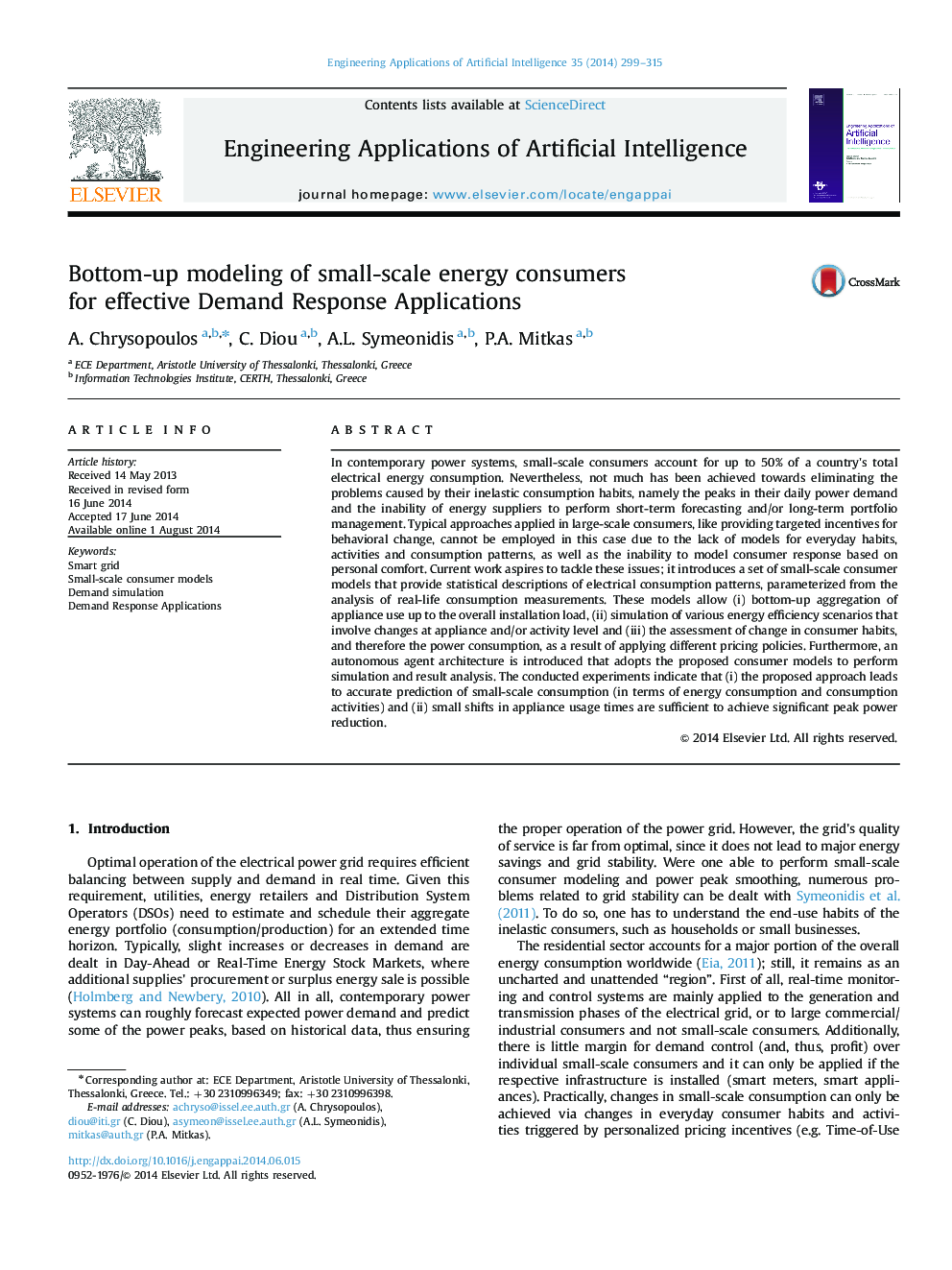| Article ID | Journal | Published Year | Pages | File Type |
|---|---|---|---|---|
| 380590 | Engineering Applications of Artificial Intelligence | 2014 | 17 Pages |
In contemporary power systems, small-scale consumers account for up to 50% of a country׳s total electrical energy consumption. Nevertheless, not much has been achieved towards eliminating the problems caused by their inelastic consumption habits, namely the peaks in their daily power demand and the inability of energy suppliers to perform short-term forecasting and/or long-term portfolio management. Typical approaches applied in large-scale consumers, like providing targeted incentives for behavioral change, cannot be employed in this case due to the lack of models for everyday habits, activities and consumption patterns, as well as the inability to model consumer response based on personal comfort. Current work aspires to tackle these issues; it introduces a set of small-scale consumer models that provide statistical descriptions of electrical consumption patterns, parameterized from the analysis of real-life consumption measurements. These models allow (i) bottom-up aggregation of appliance use up to the overall installation load, (ii) simulation of various energy efficiency scenarios that involve changes at appliance and/or activity level and (iii) the assessment of change in consumer habits, and therefore the power consumption, as a result of applying different pricing policies. Furthermore, an autonomous agent architecture is introduced that adopts the proposed consumer models to perform simulation and result analysis. The conducted experiments indicate that (i) the proposed approach leads to accurate prediction of small-scale consumption (in terms of energy consumption and consumption activities) and (ii) small shifts in appliance usage times are sufficient to achieve significant peak power reduction.
